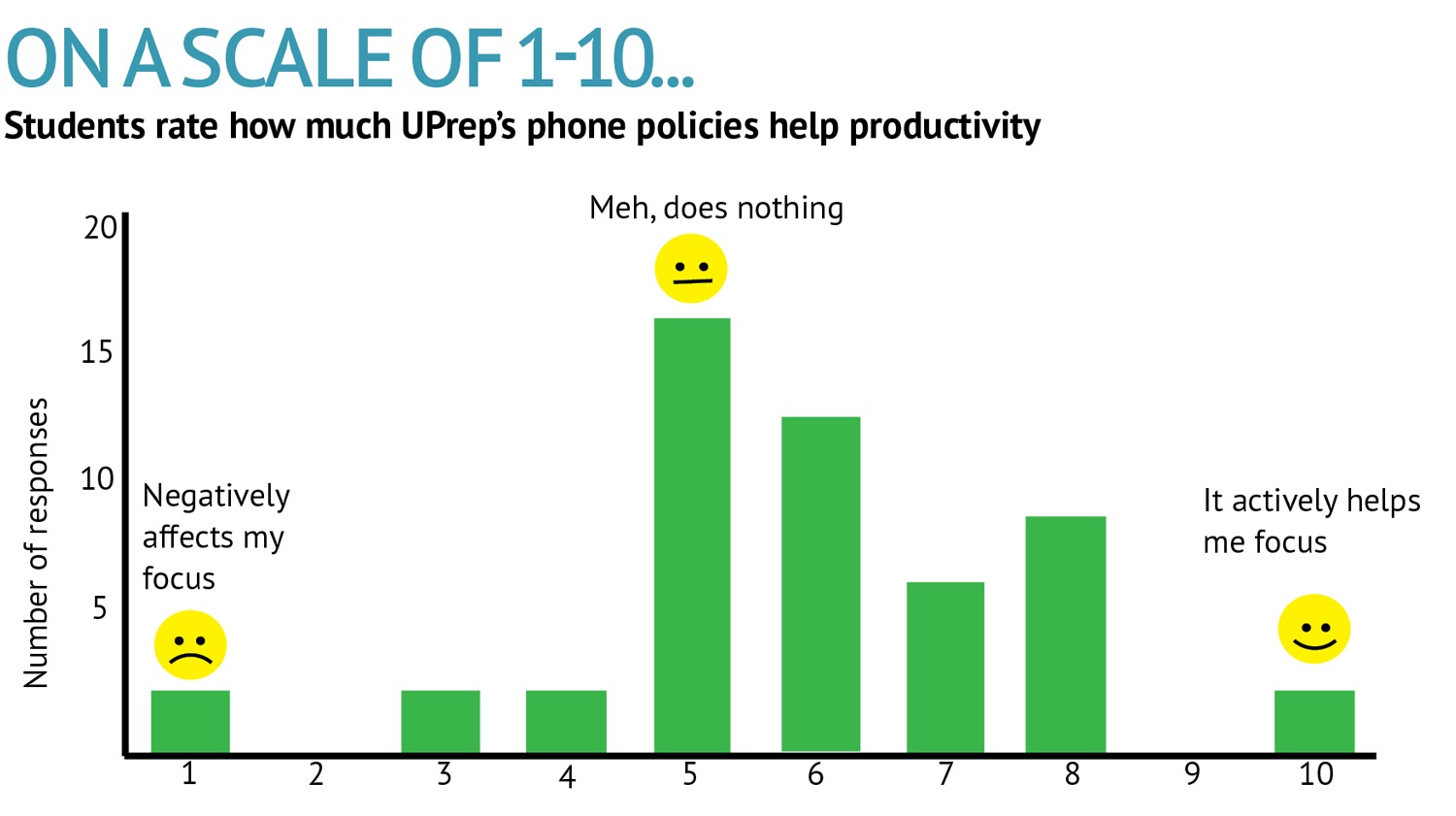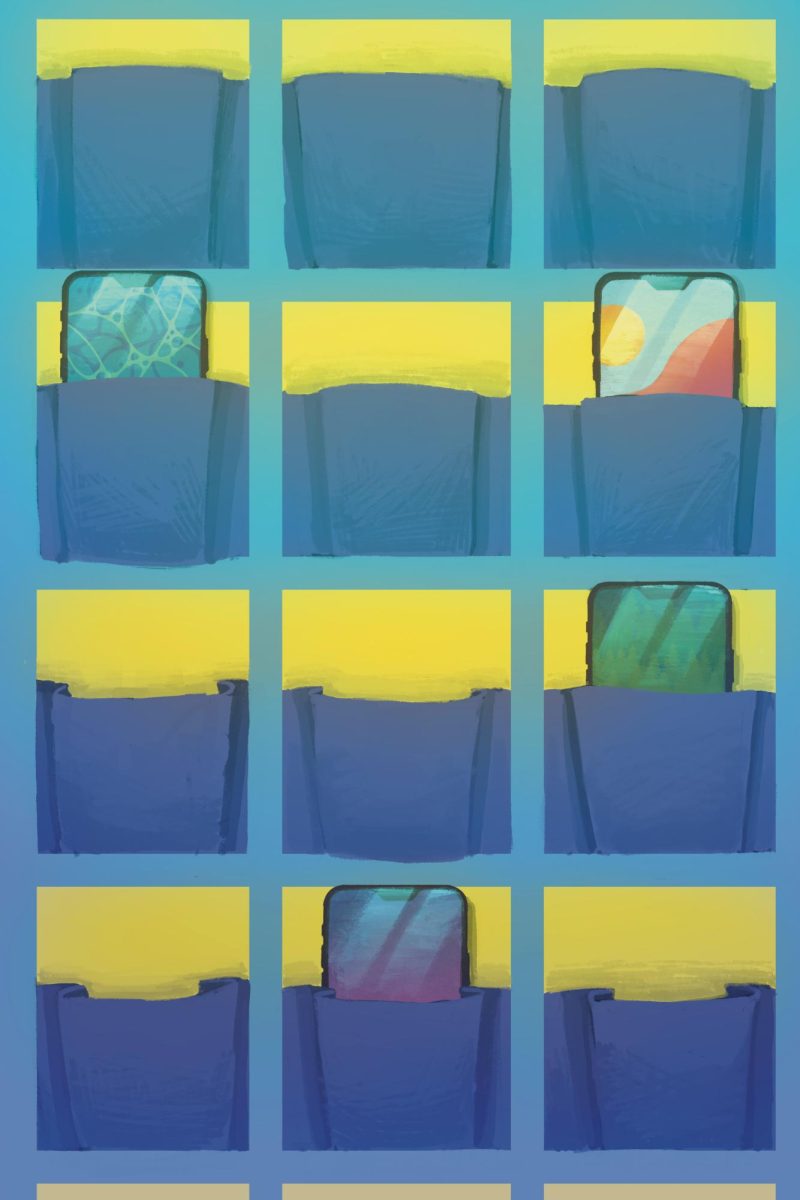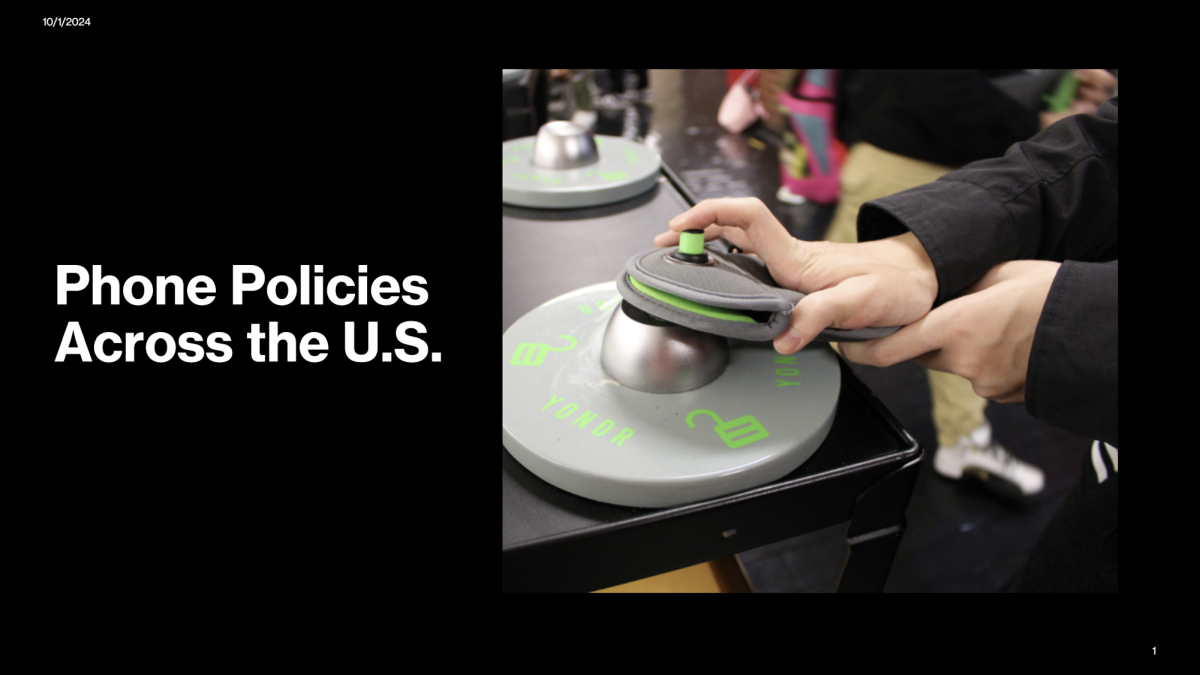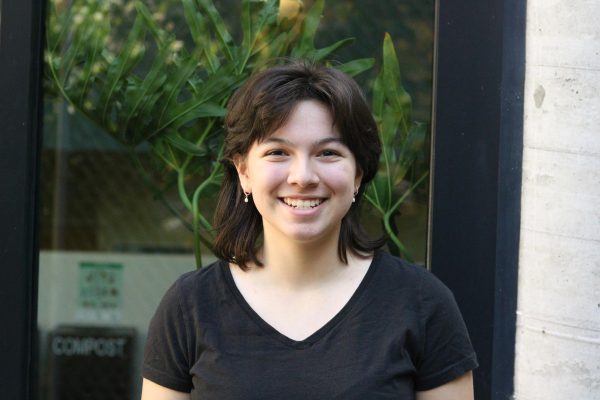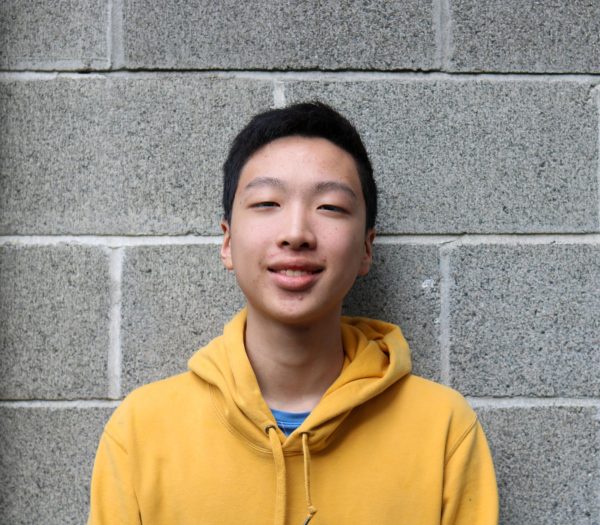Across the country, high schools are banning phones. States like Florida, Indiana, Louisiana, and South Carolina are passing laws or adopting new rules this year that ban student cellphone use either during class or throughout the entire school day. As waves of phone restrictions continue to advance and neighboring schools implement new rules, Director of Upper School Susie Wu had a role in implementing a UPrep cellphone policy.
When she arrived seven years ago, there was already a cell phone policy in place in middle school where cellphones were not allowed. In the upper school, there was no policy until Wu came in the 2023-2024 school year, where she implemented the ninth grade phone policy.
“I had moved up with this group of students last year and felt like they probably needed some help [adjusting],” Wu said. “And the teachers needed help overall, by an administrator’s setting a policy that made it a rule and consistent. This year, we’re keeping the same cell phone policy.”
On Aug. 28, Washington Superintendent of Public Instruction Chris Reykdal published new guidance for public schools on cellphone usage during school hours. Aside from the new guidance, schools across the Seattle area have been implementing Yondr phone pouches. These pouches lock phones during the school day entirely, and are only unlockable after dismissal. Seattle area schools such as Robert Eagle Staff Middle School, Mercer Island High School, and Hamilton Middle School have started using the pouches.
At UPrep, administrators further discussed phone restrictions in other schools.
“I thought about [a phone ban] over the summer, about whether we really needed to do that, and I felt like it’s already going in that direction,” said Wu. “I chose not to set a ban because I think setting a ban when we’re already going there is not worth it.”
Aside from the ninth grade cellphone policy implemented in 2022, which states that ninth grade students must place their phones in spas at the beginning of class, there is no schoolwide phone policy. It is up to individual departments and teachers to decide how and if they want to implement any restrictions.
Many classrooms have “phone spas” or phone pouches. According to a Puma Press survey of faculty, 65% of teachers use phone spas in their classrooms.
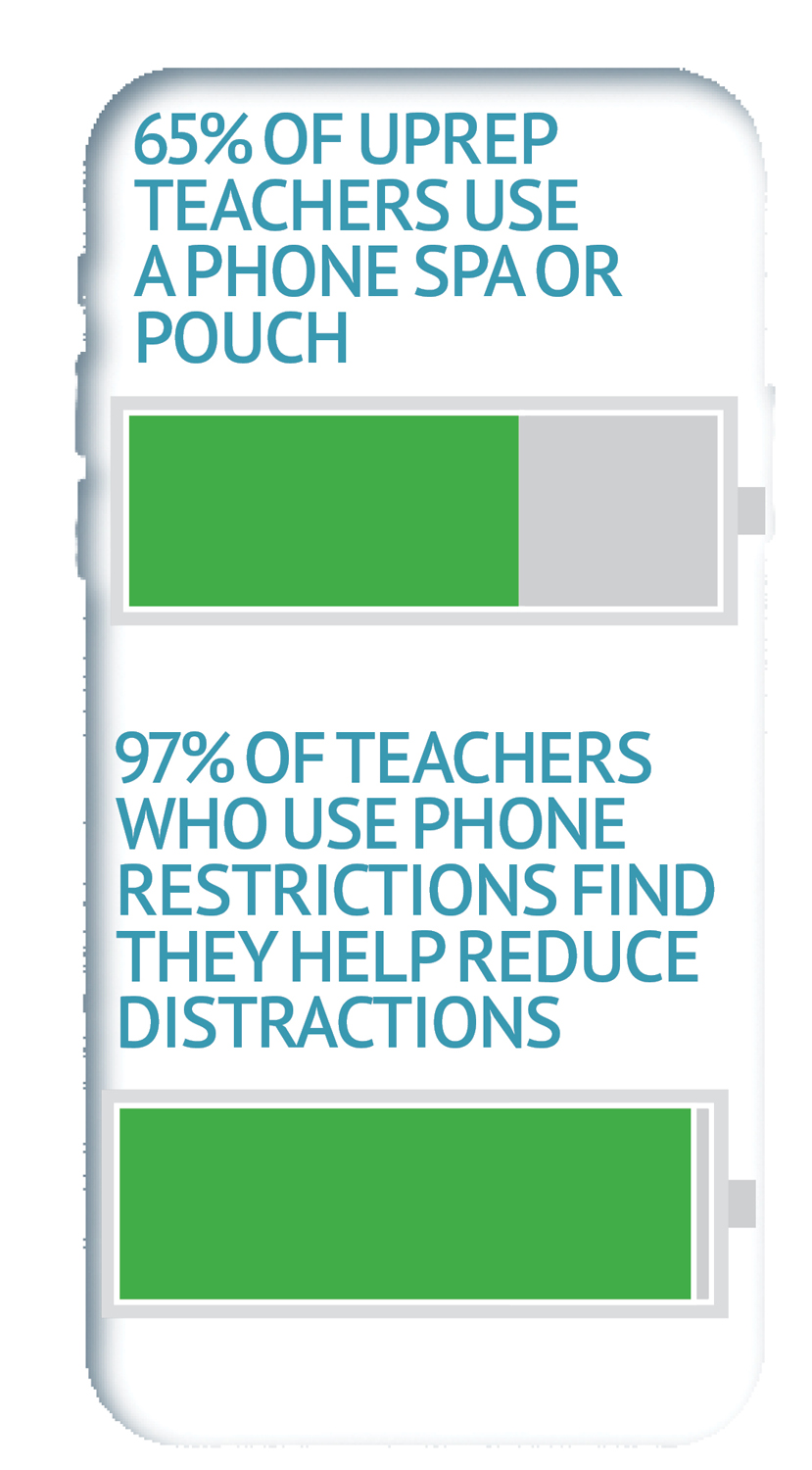
Junior Ethan Butcher believes the phone spas have helped him focus in class, but he feels the current policy has much room to grow.
“Some teachers will be very strict about their policy, other teachers won’t have one, and then some teachers don’t care,” Butcher said. “I just feel like it would be better if there was more standardization on what the policy is.”
Since the implementation of the ninth grade policy, more departments follow a “no phones in class” philosophy, including ninth grade dean and biology teacher Kelsey Anderson.
“The science department in general actually is moving toward an entirely no-phone policy,” Anderson said. “That was a departmental decision just because we were talking about all the labs that we do. It was just safer to not have phones around. And also we’ve noticed that it’s really benefited students.”
Ninth grader An Sen Wang has found the switch from his previous middle school, which did not allow phones at all during the day, and UPrep’s policy a nice balance between phone freedom and total restriction.
“I think the phone policy helps us concentrate on what we’re supposed to be doing,” Wang said. “I’ve heard other people complain that they can’t access Brawl Stars in class, but I feel like if it was just all allowed…people would get distracted and then that [would] also lead to me getting distracted.”
When the ninth grade policy started two years ago, the language department also discussed the addition of a similar policy. Sophomore dean and Spanish teacher Ciara McGrath pushed back against the policy at the time, but this year, her opinions have changed.
“In the past, I had seen that overall my students respected me when I was asking them to put them away,” McGrath said. “But last year in my classes I saw more issues than I had seen previously, with juniors and seniors really having a hard time disengaging from their phones. Not that people were disrespectful of me, it wasn’t that, but…as the year went on, I noticed that I was asking at a higher rate for students to really be present.”
Anderson has had her own struggles with keeping students off their phones in her multi-grade classes as well.
“It’s hard to enforce it when you have a multi-grade science electives,” Anderson said. “In my environmental science class right now, I have 9th, 10th, 11th and 12th graders all in one class, and the ninth graders are the only ones who put their phones in the phone pouch.”
Butcher is one junior who does put his phone away if a class does not have a phone pouch.
“It’s sometimes distracting when you are in class and then there’s a group of other people just all on their phones in the corner talking,” Butcher said. “And then I’m trying to focus on my work.”
Despite the evolving dynamics, some faculty, such as math teacher Rebecca Olivares, approach phone management with flexibility, recognizing both the benefits and drawbacks of having phones in the classroom.
“I think phones can do a lot of good,” Olivares said. “They can help parents and students feel secure. And the ability to get themselves out of a tough situation if they are left behind, or they need to get a ride [is good]. The concern is the social media.”
Despite the positives, Olivares believes that cellphone issues are not just limited to underclassman.
“I had asked one of the two teachers I work with, ‘Do you mind if I have the phone pouch moved closer to the door?’” Olivares said. “One of the teachers said, ‘I don’t use that because I teach seniors. Put it wherever you want to put it.’ And I thought, seniors can still have a phone addiction.”
According to the National Library of Medicine and scholarly website ScienceDirect, even laptop use in class can be distracting to students.
“Obviously we can use our devices to do the same things that we use the phone for,” Wu said. “The phone’s a little bit more discreet, but students figure out ways to use their devices [to distract themselves] too. The fact is, we need to use laptops also as a learning tool.”
Senior Yanwen Shu believes that laptop usage would be much more difficult to control than phone usage.
“You can’t really monitor the screens of everyone in your class unless you’re seeing them from the back,” Shu said. “But I think taking the phones away is a valid strategy for eliminating fast instinctive urge that is, ‘Oh, your phone buzzes, and you take it out and you’re gonna look at this thing.’”
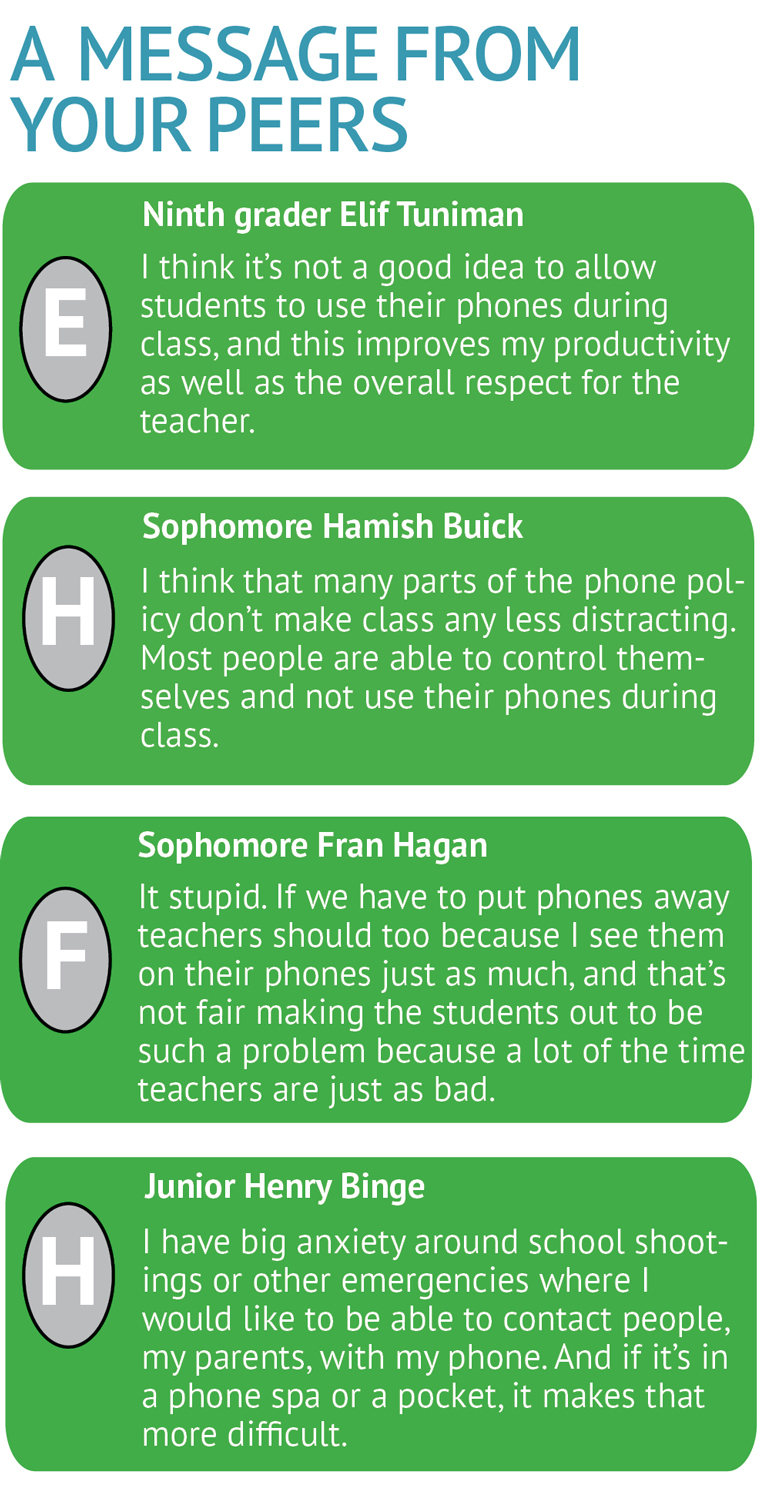
McGrath tries to limit distractions, but she agrees that it is a matter of managing them, not eliminating them.
“I think, there’s no way that I’m gonna be able to control everything, and I don’t want it to be that,” McGrath said. “I want students to be able to make concerted decisions.”
Anderson supports the idea of students being able to choose what times are best to use their devices in concept, but in her experience, she finds that it is a mixed bag on whether students really know when it is appropriate to use their phones.
“There’s times where they need to take a picture of something, or use a timer,” Anderson said. “Noticing and gaining the knowledge and to be like, ‘This is an appropriate time to use my phone’ or ‘This is not an appropriate time to use your phone,’ [is important]. Because during presentations when students are presenting on material is not an appropriate time to bring out your phone.”
Sophomore dean and history teacher Aaron Sokoll, believes that phone spas are a moderate starting point to branch out into further options. He believes the current system works but hopes that the policy will change and evolve as students mature and understand risks.
“I don’t want to infantilize. It’s really a bad idea. You do need to learn how to make choices,” Sokoll said. “Maybe junior and senior year you can keep it on you. These are the two years when you’re trying to figure out when an appropriate time is.”
Sokoll proposes that teachers are free to have their own policies but that they should be more relaxed until students prove otherwise. If they disobey the teacher’s policy, they should learn to deal with the consequences.
Despite the many problems phones bring to her classes, McGrath wants to be able to trust her students, and she wants them to be able to focus. Even if she does not entirely like it, she feels a phone spa is the best solution right now.
“I worry about students finding this a punishment and feeling like they’re being punished for something,” McGrath said. “Because I don’t want it to get to where it’s all or nothing. But I hope that most students see that it’s nice to be able to disconnect, and they see it as a benefit.”
